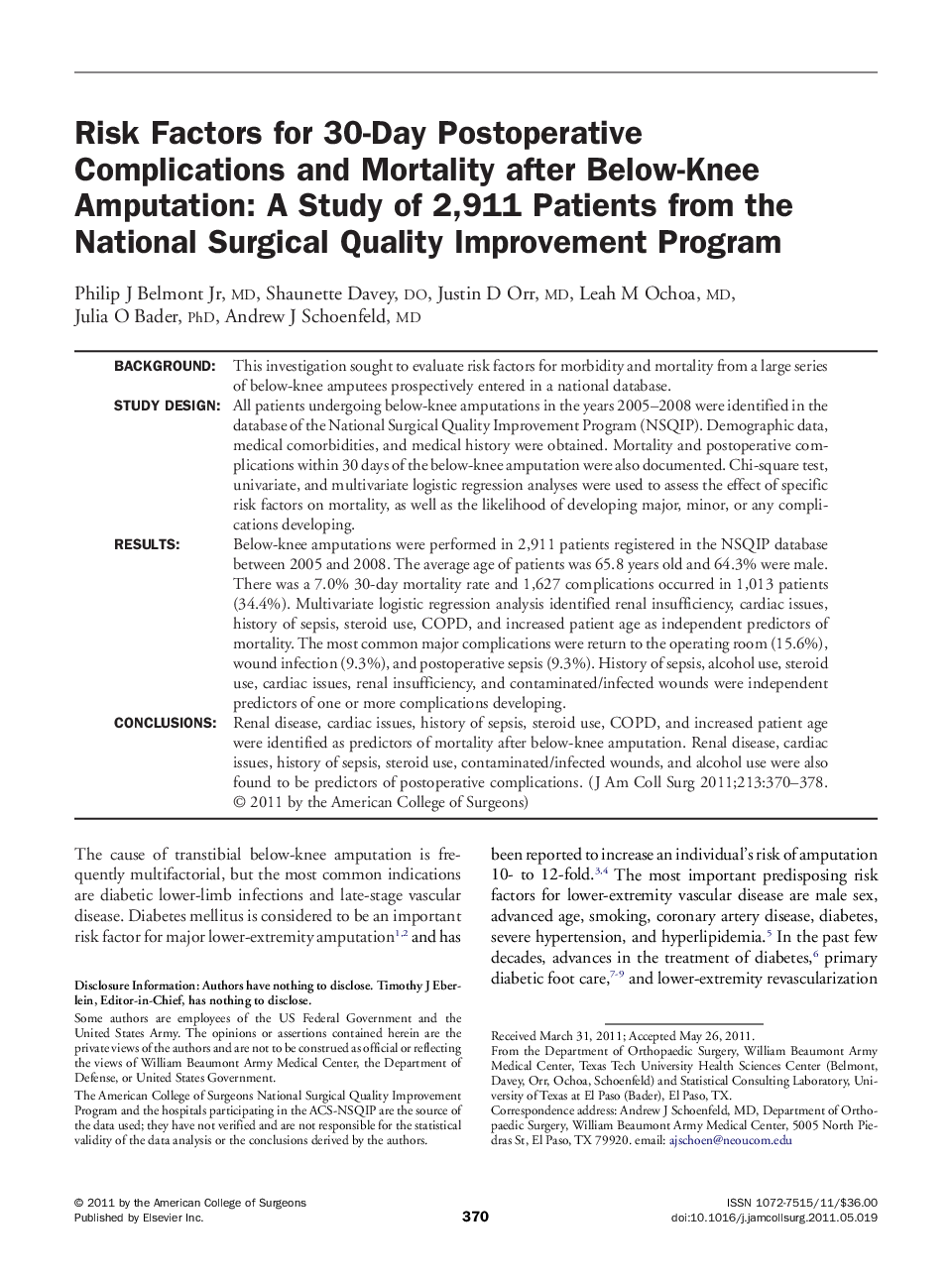| کد مقاله | کد نشریه | سال انتشار | مقاله انگلیسی | نسخه تمام متن |
|---|---|---|---|---|
| 4294191 | 1612268 | 2011 | 9 صفحه PDF | دانلود رایگان |

BackgroundThis investigation sought to evaluate risk factors for morbidity and mortality from a large series of below-knee amputees prospectively entered in a national database.Study DesignAll patients undergoing below-knee amputations in the years 2005–2008 were identified in the database of the National Surgical Quality Improvement Program (NSQIP). Demographic data, medical comorbidities, and medical history were obtained. Mortality and postoperative complications within 30 days of the below-knee amputation were also documented. Chi-square test, univariate, and multivariate logistic regression analyses were used to assess the effect of specific risk factors on mortality, as well as the likelihood of developing major, minor, or any complications developing.ResultsBelow-knee amputations were performed in 2,911 patients registered in the NSQIP database between 2005 and 2008. The average age of patients was 65.8 years old and 64.3% were male. There was a 7.0% 30-day mortality rate and 1,627 complications occurred in 1,013 patients (34.4%). Multivariate logistic regression analysis identified renal insufficiency, cardiac issues, history of sepsis, steroid use, COPD, and increased patient age as independent predictors of mortality. The most common major complications were return to the operating room (15.6%), wound infection (9.3%), and postoperative sepsis (9.3%). History of sepsis, alcohol use, steroid use, cardiac issues, renal insufficiency, and contaminated/infected wounds were independent predictors of one or more complications developing.ConclusionsRenal disease, cardiac issues, history of sepsis, steroid use, COPD, and increased patient age were identified as predictors of mortality after below-knee amputation. Renal disease, cardiac issues, history of sepsis, steroid use, contaminated/infected wounds, and alcohol use were also found to be predictors of postoperative complications.
Journal: Journal of the American College of Surgeons - Volume 213, Issue 3, September 2011, Pages 370–378